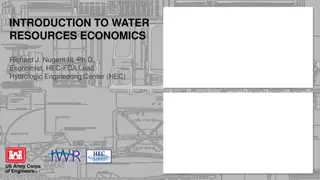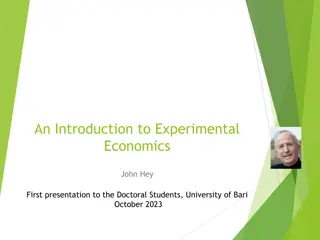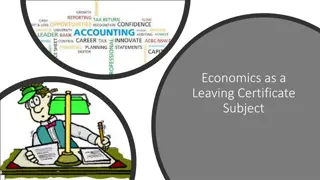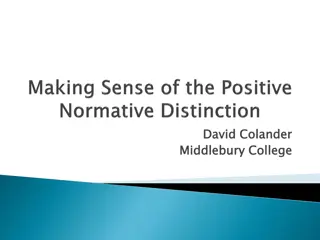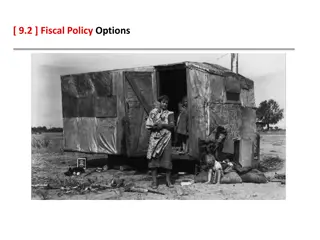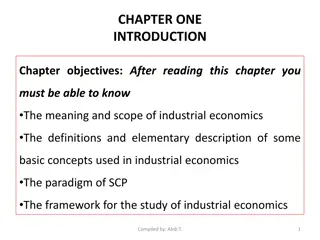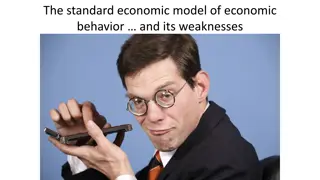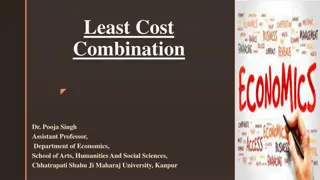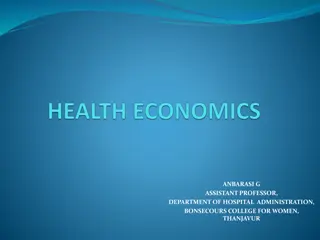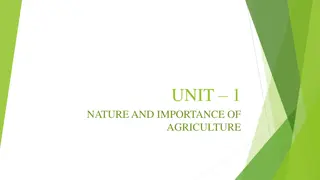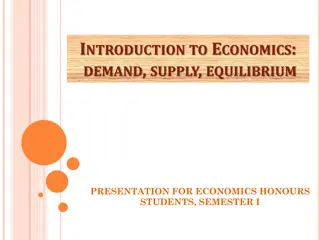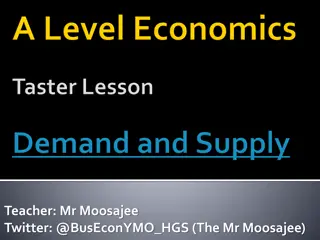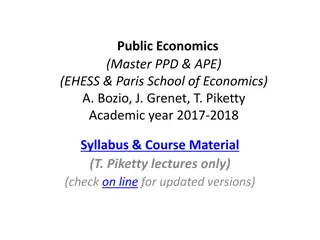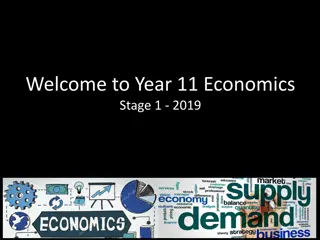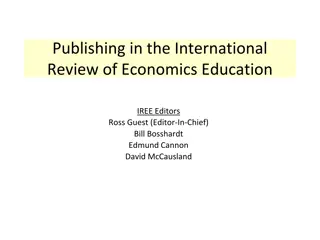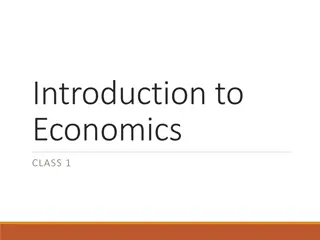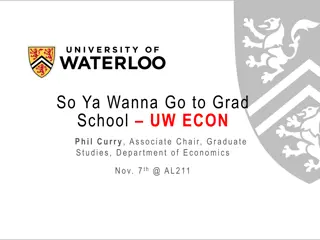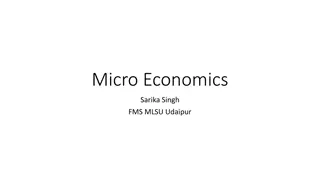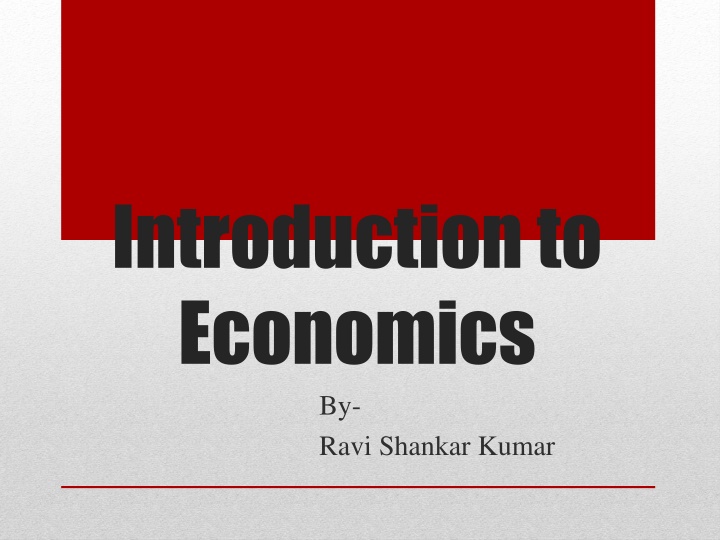
Different Definitions in Economics
Explore key definitions in economics including Wealth Definition by Adam Smith, Welfare Definition by Alfred Marshall, Scarcity Definition by Professor Lionel Robbins, and Growth-oriented Definition by Prof. Paul A. Samuelson. Learn about the origins and importance of each definition in shaping economic theory and practice.
Download Presentation

Please find below an Image/Link to download the presentation.
The content on the website is provided AS IS for your information and personal use only. It may not be sold, licensed, or shared on other websites without obtaining consent from the author. If you encounter any issues during the download, it is possible that the publisher has removed the file from their server.
You are allowed to download the files provided on this website for personal or commercial use, subject to the condition that they are used lawfully. All files are the property of their respective owners.
The content on the website is provided AS IS for your information and personal use only. It may not be sold, licensed, or shared on other websites without obtaining consent from the author.
E N D
Presentation Transcript
Introduction to Economics By- Ravi Shankar Kumar
Introduction: The term economics was derived from two Greek words eikos and nemein which means to manage household . There are several definitions of economics, four are considered relevant and important. They are: 1. Wealth definition, 2. Welfare definition, 3. Scarcity definition and 4. Growth definition.
Wealth Definition: Given byAdam Smith. Adam Smith is generally considered as the father of Classical economics. According to him, Economics is the study of the nature and causes of national wealth. Because the definition is based on Wealth, so this definition is termed as wealth definition. He has written a book entitled The Wealth of Nations .
Welfare definition Given byAlfred Marshall. According to him, Economics is the study of mankind in the ordinary business of life; it examines that part of individual and social action which is most closely connected with the attainment and with the use of the material requisites of well-being . In simple form- Economics is a study of mankind in the ordinary business of life . He has written a book named Principles of Economics in 1890.
Scarcity definition Given by Professor Lionel Robbins. According to him : (i) man has unlimited wants or ends, (ii) the means or resources to satisfy them are limited, (iii) the resources are not specific and have alternative uses and (iv) hence there is an urgent need to choose between wants Thus, Lionel Robbins defined economics as the science which studies human behaviour as a relationship between ends and scarce means which have alternative uses.
Growth-oriented Definition Given by Prof. Paul.A.Samuelson, a Nobel Laureate in Economics. According to him, Economics is the study of how people and society end-up choosing, with or without, the use of money, to employ scarce productive resources that could have alternative commodities and distribute them for consumption, now or in the future among the costs and benefits of improving patterns of resource allocation . This definition is considered as Modern definition of Economics. uses to produce various
Micro and Macro Economics The terms micro-economics and macro-economics were first used by the Swedish economist Ragnar Friesch in the 1920s. Microeconomics deals with individuals, households, firms and industries or individual prices, wages or incomes. It studies the economic motives and behaviour consumers and produces involved in organising and operating individual business firms or industries. Macroeconomics is the study of economic system as a whole, of the aggregate consumption and demand and of the aggregate saving, investment and employment in the economy. It deals with aggregates and averages of the system rather than individual items in it. patterns of individual
Environmental Economics Environmental economics is a branch of Economics that deals with application of economic principles in the conservation and management of nature. It is also called as Natural Resource Economics or Ecological Economics. When welfare Economics expanded its boundary, environmental importance. economics gained
Cont Environmental economics deals with economic and managerial aspects of pollution and natural resources. It interacts between human beings and their physical surroundings. It studies the impact of pollution on human beings and suggests national utilization of resources in a proper way so that there may be an increase in social welfare or minimization of social costs.
Positive and normative economics Positive science is descriptive in nature as it describes what happens. It does with the question of "what is? Normative science deals with the question of "what ought to be?" While the positives science describes, the normative science prescribes. Economics is a positive as well as a normative science. It describes what happens in an economy and prescribes what ought to be done to put it on a desired path of development.
Resource Scarcity Resources are classified as free goods and economic goods. Economic goods have an exchange value and we need to pay for it. They are traded in a market. Free goods are the gifts of Nature and do not have a price as they lack exchange value. An item is said to be an economic bad if people are willing to pay to avoid the item. Resources have many uses, and hence it becomes a question of choice while using a resource to satisfy wants. It warrants rational thinking and proper decision making while using resources by the consumer. Economists argue that individuals pursue their rational self- interest when making choices.
Cont.. fallacy of composition The incorrectly attempts to generalize from a relationship that is true for each individual, but is not true for the whole group. The association as causation fallacy, also known less technically as the post hoc, ergo propter hoc fallacy, occurs if one incorrectly assumes that one event is the cause of another simply because it precedes the other event. occurs when one

